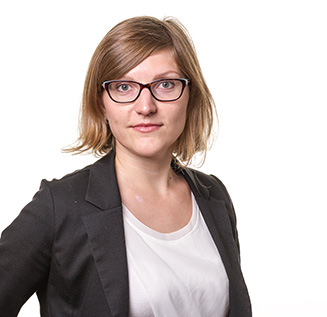Mari-Klara Stein – Transformation of our jobs

Photo by Becca Tapert on Unsplash.
We asked our CBS researcher Mari-Klara Stein to look at our digital future from their own research perspective to understand how digitalisation is changing our lives.
What are the emerging forms of digital work?
Digital work includes various new types of work that did not exist before the Internet, such as being a “Youtuber”, an “Instagram influencer” or a Facebook “cleaner”; it also includes new professions such as data scientists, social media managers and chief digital officers; as well as reconfigurations in existing professions, such as the digitalisation of legal and medical work.
However, the concept of digital work remains difficult to define and distinguish. On the one hand, there seems to be some agreement that digital work is different from what has come before – e.g., tele-, or virtual work, mobile and flexible work – and subsumes various forms of platform-based gig and crowd work (work outsourced through an open call to a geographically dispersed crowd). On the other hand, it is unclear what really distinguishes the concept from others and whether there is a need for it.
Perhaps the term “digital work” is just another fad and too broad to be useful.
Which sectors will be most affected by this digital transformation?
I would say all sectors but perhaps at different rates and also in different ways. In some manufacturing sectors we’re seeing very fast automation and displacement of workers, while we have yet to see chefs or hairdressers being replaced by robots. But that doesn’t mean that the fine dining industry or the beauty industry will not be affected – here it’s more likely that customer experiences will be increasingly hybrid with both physical and digital elements which also means changes to the work.
What are the implications of work digitalisation on emotional well-being and fulfilment of our jobs?
Work digitalisation can have both positive and negative implications for well-being and fulfillment. In terms of negative implications, it is well-known that increasingly frequent and intense introduction of new technologies in the workplace can create what is known as technostress.
People experience technostress when they cannot adapt to or cope with information technologies in a healthy manner.
They feel compulsive about being connected and sharing constant updates, feel forced to respond to work-related information in real-time, and engage in almost habitual multi-tasking. They feel compelled to work faster because information flows faster and have little time to spend on sustained thinking and creative analysis.
In terms of positive implications, work digitalisation allows time and location flexibility in when and where we work, which many people find help reduce stress as you don’t have to commute all the time, and you can flexibly plan your work schedule as it fits you.
Tell us about the session on post-pandemic digital workplaces at the upcoming Digital Tech Summit.
We have asked five business leaders to join myself and Tina Blegind Jensen (Professor MSO at the Department of Digitalization, CBS) to discuss what post-pandemic digital workplaces look like, and how to take advantage of lessons learned during the pandemic.
For me, the key characteristic that will be part of all digital workplaces of the future (and it is something we learned a lot about during the pandemic) is flexibility. One size really does not fit all, and future “workplaces” will be more like a collection of personalised environments and services we draw on to get our work done and find fulfilment.
One thing we discussed in preparation for this summit was the idea that perhaps in the future a key interview question will be how flexible do you want your job to be? So the employer will ask the potential employee what flexibility requirements they have, and this could become the standard question. So your contract becomes completely personalised, so you can set up where and when you work and how that fits your needs.
